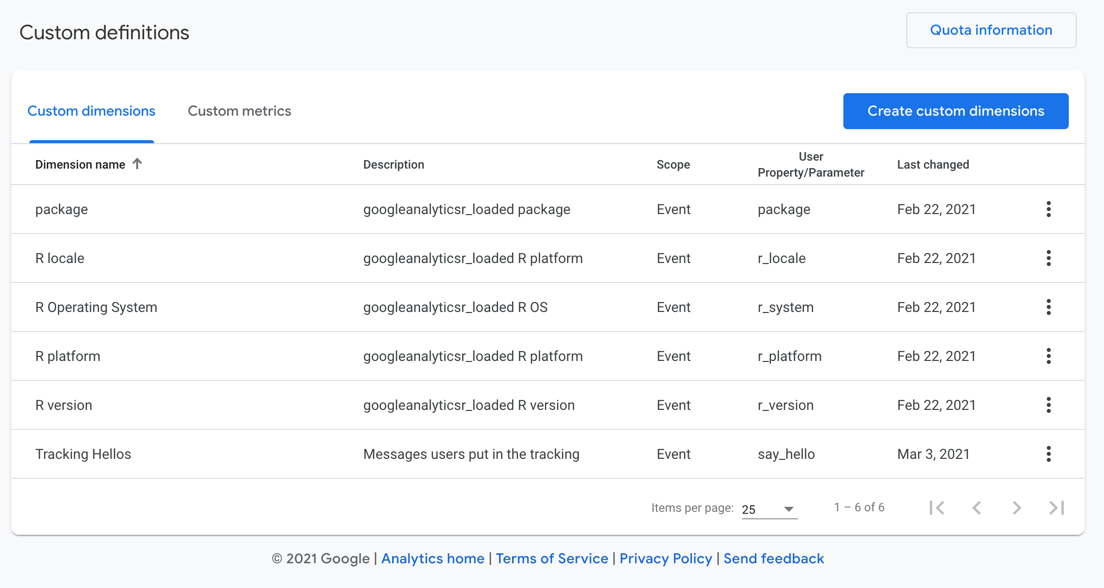R setup
To enable package tracking in your R package you need the following:
- Add your API secret and measurementId to a
.trackmeenvironment within your package. These are public so it is possible for people to use them to send data.
.trackme <- new.env()
.trackme$measurement_id <- "G-1234"
.trackme$api <- "_hS_7VJXXXXXXX"- Document usage of
mp_trackme()(or a wrapper function) that will let end-users opt in to tracking.
mp_trackme("yourPackage")Since you know the package name, it is recommended to wrap the functions above with the package filled in e.g. this package uses mp_opt_in() to ask for opt-in for its own stats (meta)
mp_opt_in <- function(){
mp_trackme("measurmentProtocol")
}- In an
.onAttachstart-up function add:measurementProtocol::mp_trackme_event()which will check for an opt-in file and send a message if it is not present, or if it is present will send the tracking event. Also add in the name of your opt-in function to appear in the startup message:
.onAttach <- function(libname, pkgname){
measurementProtocol::mp_trackme_event(pkgname, opt_in_function = "mp_opt_in")
}GA4 setup
You need to add the custom definitions that will be sent in the tracking events. They are shown below:

- package - the package name and version as returned by
paste(package, utils::packageVersion(package)) - r_locale - the locale as returned by
utils::sessionInfo()$locale - r_system - the system as returned by
utils::sessionInfo()$running - r_platform - the platform as returned by
utils::sessionInfo()$running - r_version - the version as returned by
utils::sessionInfo()$R.version$version.string - say_hello - a message users may add if you let them via
measurementProtocol::mp_trackme_event()
googleAnalyticsR package tracking with ga_trackme
googleAnalyticsR uses the above to provide opt-in tracking of what systems its running on.
ga_trackme() is sent on package load if consent is given in the form of a file saved on the user’s computer (much like a website cookie).
You can see what is sent with the debug_call=TRUE flag - the below is sent when this RMarkdown file renders:
ga_trackme_event(debug_call = TRUE, say_hello = "Documentation is a feature")Send your own messages if you like! I will read them in the GA4 interface.